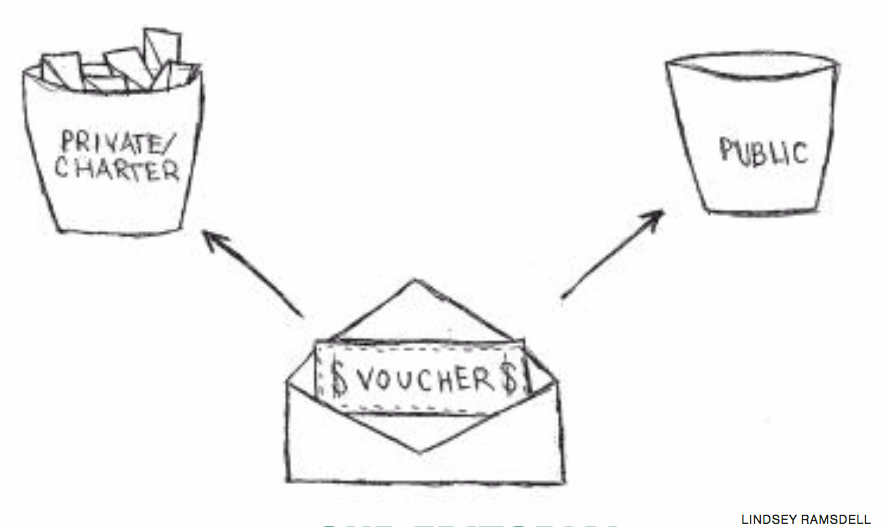Our Editorial: DeVos’ plans for vouchers, school of choice don’t make the grade
January 13, 2017
In 1974, the Equal Educational Opportunities Act ended segregation in schools at the federal level, even though educational operations were long seen within the jurisdiction of cities and states. Now, in 2017, President-elect Donald Trump’s nomination of Betsy DeVos as secretary of education has stirred the conversation about the use of school vouchers and privatization of K-12 schools.
DeVos, a Michigan native, has a history of advocating for the expansion of voucher programs and charter schools of choice. Education vouchers enable families to receive their taxpayer dollars and use them towards sending their children to any private or charter school that they want.
The closest example of this struggle between private and public schools lies just miles away. Detroit is renowned for its low-performing public schools, so much so, that many kids in Detroit Public Schools instead attend charter schools. Moving students from an unsatisfactory public school into charter schools did not catalyze any educational shift. Charter schools in Detroit have been found to perform just the same as the traditional schools. With this being said, there is a place for charter schools. However, incentivizing them through vouchers is not the direction that needs to be taken throughout the entire country.
Advocates for vouchers hail them because they offer a more financially attainable option to get students out of being bound to whatever public school is in their district. Others argue that they zap money from public schools, the lifeblood of education in America.
Because of the ineffective switch to charter schools in impoverished communities in Michigan, the Editorial Board does not advocate for the use of educational voucher programs.
While the freedom of school choice is desirable to some, the practice ultimately takes away from public schools. When public schools are defunded, jobs are lost, institutions and communities are weakened and students pay the ultimate price. Redesignating money and resources away from public schools that are already struggling is counterintuitive and essentially drives them further into a ditch.
The utilization of school vouchers is an optimal exception when desired, but they should not be the general standard. Setting vouchers as the norm forecasts an unsettling future for public education in America. The answer is not to shake up the whole system. By radically altering the standing structure, the high functioning and successful public schools across America will suffer.
The taxpaying citizens of America send their children to public schools on the American Dream-esque idea that hard work and dedication will break down every obstacle on the path to success. But with vouchers, the opportunities in the public school systems will be sucked out, and the middle-class and inner-city children could potentially be disadvantaged.
School of choice and re-prioritization of funds is inherently unrealistic for students in areas where the economy is poor. In many cases, like Detroit, the best private and charter schools are struggling regardless of how they are funded. Changing the flow of money does not do much when an entire area has fallen on hard times. Students in a world with vouchers may have increased difficulties regarding busing, school environment and resources and it will ultimately affect their academic performance and future.
The proof of the inadequacy of charter schools is blaringly evident. The cold switch to the voucher system is purely ideological. Pinpointing where the problem areas are and seeing which type of educational system would be effective takes time and careful study. There is no blanket solution for inequality in American education.
By encouraging vouchers, entire school systems in America would essentially be defunded. Enacting this drastic switch would change the daily lives of the tens of millions of public school students in America. Education is the backbone of America. Redesigning the system on a notion that has proved itself to be weak is not the change America needs.












